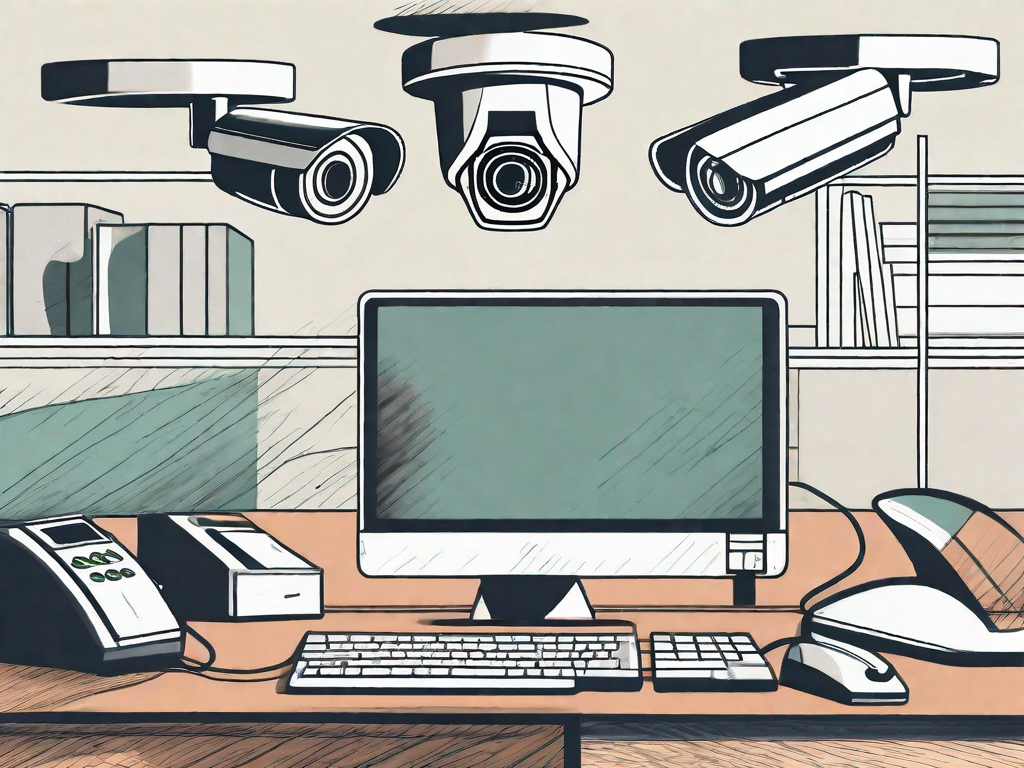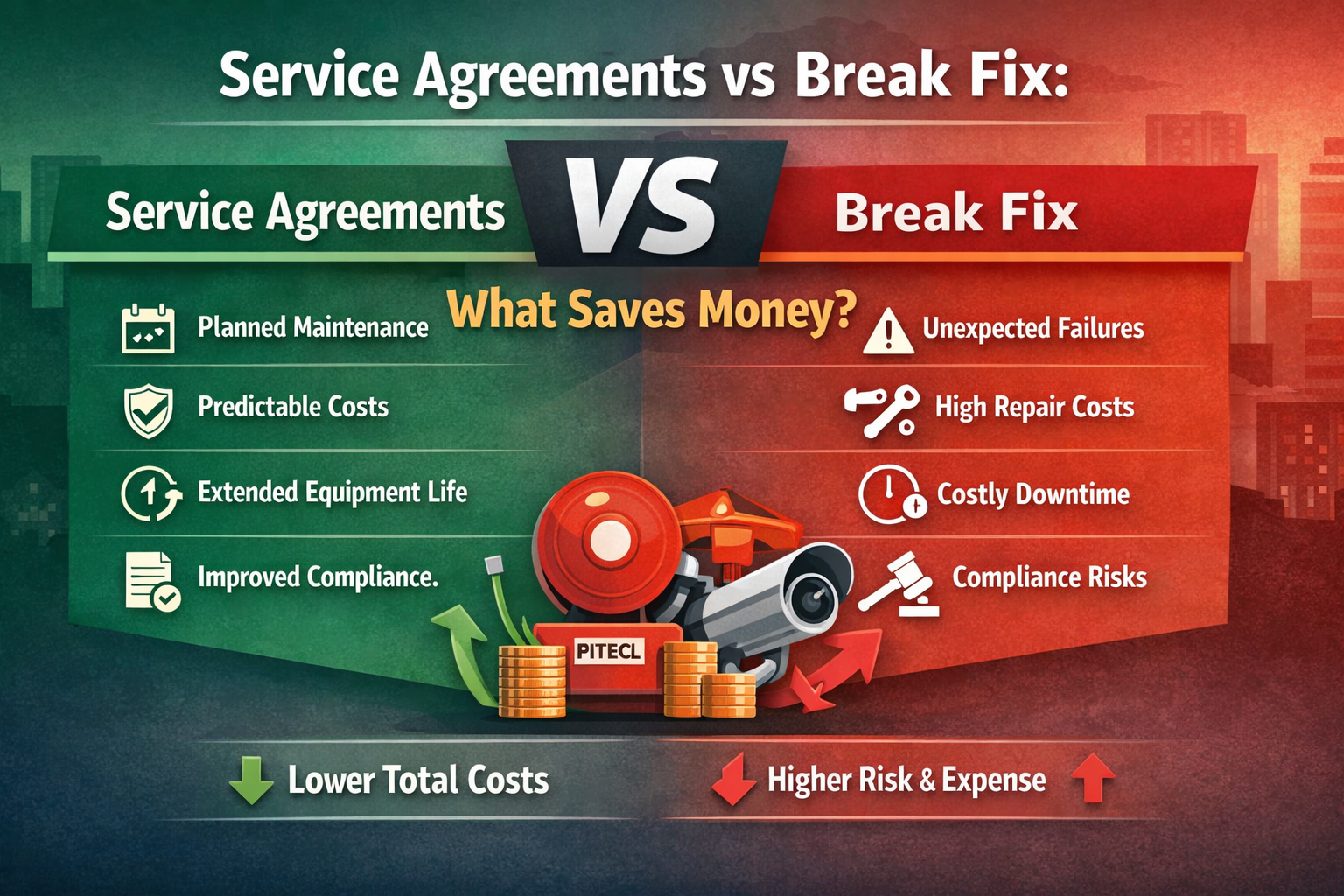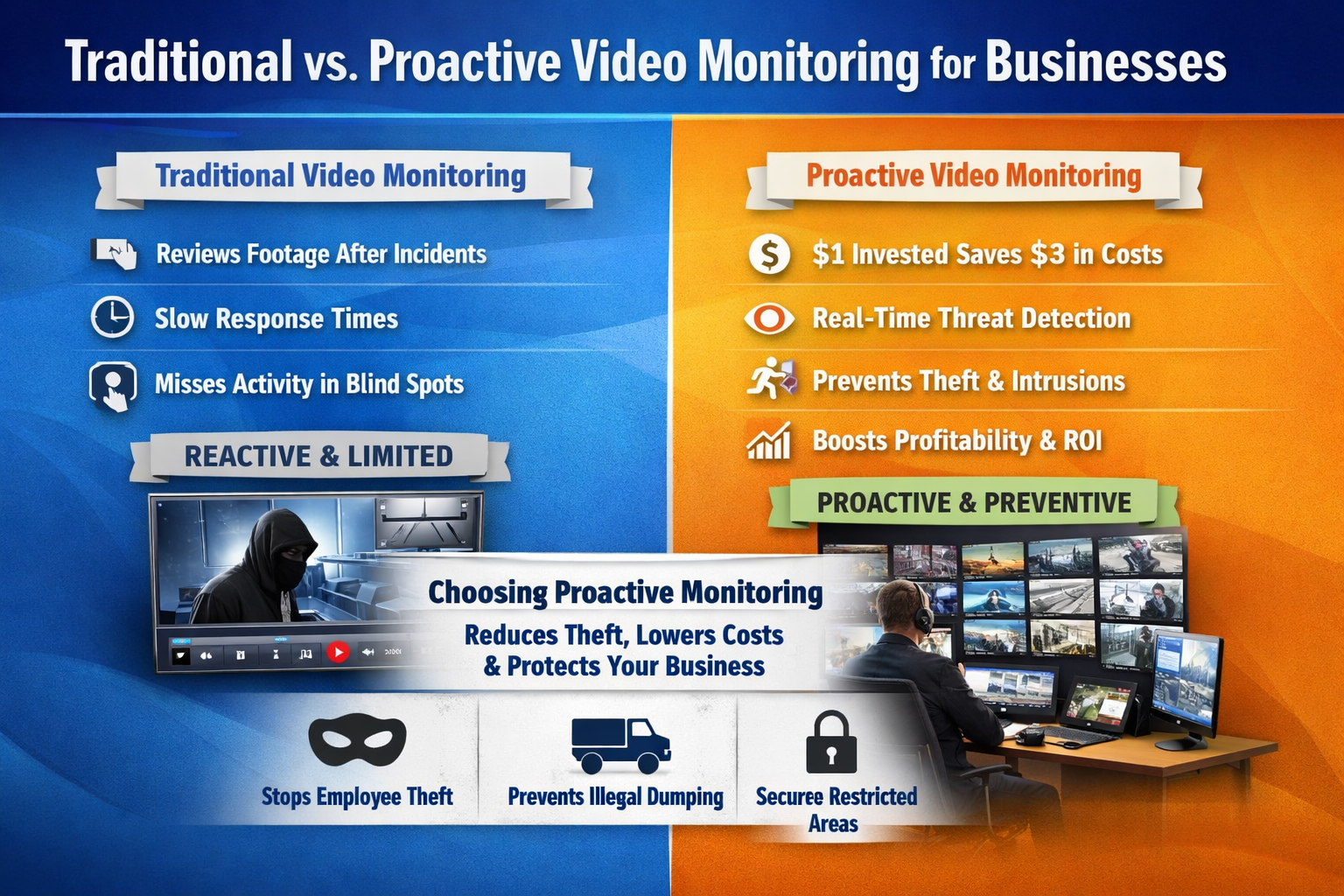
How Do I Choose a Security System For My Business?
Business security is a crucial aspect that every business owner should prioritize. With the rising concerns about theft, vandalism, and other security risks, having a reliable security system in place is essential. However, choosing the right security system for your business can be overwhelming, given the numerous options available in the market. In this article, we will guide you through the process of selecting the most suitable security system for your business, taking into consideration your specific needs, potential risks, budget, and desired features.
Understanding the Importance of Business Security
Before delving into the process of choosing a security system, and the correct professional to partner with for your safety, it is important to comprehend the significance of business security. In today’s world, where businesses face a wide range of threats, investing in a comprehensive security system can provide numerous benefits and give you peace of mind.
Business security goes beyond just protecting physical assets. It encompasses the safety and security of your employees, customers, and sensitive data. With the increasing prevalence of theft, vandalism, and cyber attacks, having a robust security system in place has become more crucial than ever.
When it comes to physical security, a well-designed security system serves as a deterrent against intruders and criminals. It includes features such as surveillance cameras, access control systems, and alarms that not only help prevent unauthorized access but also provide evidence in case of any criminal activity.
However, the importance of business security extends beyond physical threats. In today’s digital age, data breaches and cyber attacks pose significant risks to businesses of all sizes. A comprehensive security system should include measures to protect your sensitive data, such as firewalls, encryption, and intrusion detection systems.
The Role of Security Systems in Businesses
Business security systems serve as a deterrent against intruders and criminals. They play a vital role in preventing theft, vandalism, and other criminal activities, thereby safeguarding your assets, employees, and customers. Security systems not only protect physical assets but also help in mitigating risks associated with data breaches and cyber attacks. Commercial security systems can also help with panic button monitoring, critical condition monitoring (such as a temperature being too high or low or a freezer temperature going too high), situational monitoring and much more.
Surveillance cameras are a fundamental component of a security system. They act as a watchful eye, monitoring your business premises 24/7. The presence of cameras alone can deter potential criminals, as they know their actions are being recorded. In case of any suspicious activity, the footage can be used as evidence to identify and apprehend the culprits.
Access control systems are another crucial aspect of business security. They allow you to restrict access to certain areas of your premises, ensuring that only authorized personnel can enter. This helps prevent unauthorized individuals from gaining access to sensitive areas or valuable assets.
In addition to physical security measures, businesses also need to focus on cybersecurity. With the increasing reliance on technology and the internet, cyber attacks have become a major concern. A comprehensive security system should include measures to protect your network, such as firewalls, antivirus software, and regular vulnerability assessments.
Why Your Business Needs a Security System
Every business, regardless of its size or industry, can benefit from having a security system in place. By investing in a security system, you are taking proactive measures to minimize potential risks and ensure the safety and security of your business operations. Additionally, having a security system can enhance the reputation and credibility of your business among customers and partners.
One of the primary reasons your business needs a security system is to protect your assets. Whether it’s expensive equipment, inventory, or confidential documents, having a security system in place can deter theft and vandalism. This not only saves you from financial losses but also ensures that your business can continue to operate smoothly without any disruptions.
Furthermore, a security system provides a sense of safety and peace of mind to your employees. Knowing that their workplace is secure can boost their morale and productivity. It also demonstrates that you prioritize their well-being, which can contribute to employee satisfaction and retention.
From a customer perspective, having a security system in place can enhance their trust and confidence in your business. Customers want to feel safe when they visit your premises or share their personal information with you. By investing in a security system, you are sending a clear message that you take their safety seriously.
Moreover, a security system can also benefit your business in terms of insurance. Many insurance companies offer reduced premiums for businesses that have implemented security measures. By demonstrating that you have taken steps to mitigate risks, you can potentially save on insurance costs.
In conclusion, the importance of business security cannot be overstated. Investing in a comprehensive security system is essential to protect your assets, employees, and customers from physical and digital threats. It not only deters criminals but also enhances the reputation and credibility of your business. By prioritizing security, you are taking proactive measures to ensure the smooth and secure operation of your business.
Assessing Your Business Security Needs
When it comes to choosing a security system for your business, it is crucial to start by assessing your security needs accurately. This will help you identify potential vulnerabilities and determine the level of security required.
Ensuring the safety and protection of your business premises is of utmost importance. By conducting a comprehensive risk assessment, you can gain valuable insights into the potential security risks that your business may face. This assessment involves carefully examining every nook and cranny of your premises to identify potential entry points, weak spots, and areas prone to security breaches.
It is essential to consider both internal and external risks when assessing your security needs. Internal risks may include employee theft or unauthorized access, while external risks can range from break-ins to cyber threats. By understanding the specific risks your business faces, you can make informed decisions about the type of security system that best meets your needs.
Identifying Potential Security Risks
Begin by conducting a comprehensive risk assessment of your business premises. Identify potential entry points, weak spots, and areas prone to security breaches. Consider both internal and external risks, such as break-ins, employee theft, unauthorized access, and cyber threats. By understanding the specific risks your business faces, you can make informed decisions about the type of security system that best meets your needs.
During the risk assessment process, it is essential to pay attention to every detail. Look for vulnerabilities in your physical infrastructure, such as windows, doors, and gates. Consider the layout of your premises and whether it facilitates or hinders security measures. Additionally, evaluate your current security protocols and systems to determine their effectiveness and identify any gaps that need to be addressed.
Moreover, it is crucial to consider the nature of your business and the industry you operate in. Different industries may face specific security risks that require tailored security solutions. For example, a retail business may need to focus on preventing shoplifting and theft, while a technology company may prioritize safeguarding sensitive data from cyber threats.
Determining Your Security Priorities
Next, prioritize your security requirements based on the identified risks. Determine what you value most in a security system—is it surveillance, access control, alarm systems, or a combination of these? Consider factors such as the nature of your business, the value of your assets, and the level of control you want over your security system. This will help you narrow down your options and select a system that aligns with your top priorities.
Surveillance systems can provide real-time monitoring and recording, allowing you to keep an eye on your premises even when you are not physically present. Access control systems, on the other hand, can restrict entry to authorized personnel only, enhancing the overall security of your business. Alarm systems can act as a deterrent and alert you and the authorities in case of a security breach.
Furthermore, consider the scalability and flexibility of the security system you choose. As your business grows, your security needs may evolve, so it is important to select a system that can adapt to these changes. Additionally, think about the integration capabilities of the system with other security measures or technologies you may already have in place.
By carefully assessing your business security needs and identifying potential risks, you can make informed decisions when selecting a security system. Remember, investing in the right security measures is an investment in the long-term success and protection of your business.
Types of Business Security Systems
Now that you have assessed your security needs, let’s explore the different types of security systems available for businesses.
Overview of Security System Options
There is a wide range of security systems to choose from, including CCTV (Closed-Circuit Television) systems, access control systems, alarm systems, and video surveillance systems. Each system has its own unique features and benefits, catering to different security requirements. Consider the pros and cons of each system to determine which one suits your business best.
Pros and Cons of Different Security Systems
• CCTV Systems: CCTV systems provide visual surveillance and record footage for review or evidence purposes. They act as a deterrent and aid in identifying suspects. However, they may require significant initial investment and ongoing maintenance.
When it comes to CCTV systems, there are various options available in the market. Some systems offer high-definition cameras with night vision capabilities, ensuring clear footage even in low-light conditions. Additionally, advanced CCTV systems can be integrated with other security measures, such as access control systems, to provide a comprehensive security solution for your business.
• Access Control Systems: Access control systems regulate entry and exit to your premises, ensuring that only authorized individuals can access restricted areas. These systems can enhance security and provide comprehensive audit trails. However, they may be costly to install, especially for larger premises.
Access control systems come in different forms, such as key card systems, biometric systems, and keypad systems. Key card systems are commonly used in office buildings, allowing employees to swipe their cards to gain access. Biometric systems, on the other hand, use unique physical characteristics like fingerprints or iris scans to verify identity. These systems provide an added layer of security as they are difficult to replicate or forge.
• Alarm Systems: Alarm systems detect and alert you to unauthorized entry, fire, or other emergencies. They can be effective in deterring intruders and notifying relevant authorities. However, false alarms can be disruptive and lead to complacency if not properly managed.
Modern alarm systems are equipped with advanced features such as motion sensors, glass break detectors, and smoke detectors. These features ensure that any suspicious activity or potential threats are immediately detected and reported. Additionally, some alarm systems can be integrated with mobile apps, allowing you to monitor and control your security system remotely.
• Video Surveillance Systems: Video surveillance systems combine CCTV cameras with advanced software features, such as motion detection. They provide real-time monitoring and evidence collection capabilities. However, installation and maintenance costs should be carefully considered.
Video surveillance systems have evolved significantly in recent years. With the advent of artificial intelligence, these systems can now analyze video footage in real-time, automatically detecting and alerting you to any suspicious activity.
When choosing a video surveillance system, it is important to consider factors such as camera resolution, storage capacity, and scalability. High-resolution cameras provide clearer images, while ample storage capacity ensures that you can retain footage for longer periods. Scalability is also crucial, as your business may expand in the future, requiring additional cameras and storage.
Key Features to Look for in a Security System
When selecting a security system for your business, there are certain key features you should prioritize to ensure maximum protection.
Having a reliable and effective security system is crucial for the safety and security of your business. With the increasing prevalence of security threats and incidents, it is important to invest in a system that meets your specific needs and provides comprehensive protection. Here are some key features to consider when evaluating security systems:
Essential Security System Components
Consider the following components when evaluating security systems:
- Quality Cameras: Choose high-resolution cameras that can capture clear footage, even in low-light conditions. Investing in cameras with advanced features such as night vision and wide-angle lenses can significantly enhance the effectiveness of your security system. With clear and detailed footage, you can easily identify potential threats and incidents.
- Remote Monitoring: Look for systems that offer remote monitoring capabilities, allowing you to access live video feeds and receive alerts on your mobile devices. This feature enables you to keep an eye on your business premises from anywhere, providing you with peace of mind and the ability to respond promptly to any suspicious activities.
- Access Control: Ensure the system allows you to define and manage access privileges for different employees and visitors. Access control systems provide an added layer of security by restricting unauthorized entry and ensuring that only authorized individuals can access certain areas of your business. This feature helps prevent theft, vandalism, and unauthorized access to sensitive information.
- Integration: Consider systems that can integrate with other security devices, such as alarms and sensors, for a comprehensive solution. Integration allows different security components to work together seamlessly, enhancing the overall effectiveness of your security system. For example, when an alarm is triggered, the cameras can automatically start recording, providing valuable evidence for investigations.
- Scalability: Select a system that can easily expand as your business grows, allowing you to add more cameras or features. Scalability is essential to accommodate future expansion and changing security needs. A flexible and scalable security system ensures that your investment remains relevant and effective in the long run.
Advanced Features for Enhanced Security
In addition to the essential components, advanced security features can provide an extra layer of protection:
- Video Analytics: Look for systems that offer video analytics capabilities, such object tracking, to enhance incident detection and response. Video analytics can automatically identify and track suspicious activities, allowing you to take immediate action and prevent potential threats from escalating.
- Cloud Storage: Consider systems that provide cloud storage for your video footage, ensuring data backup and remote access. Cloud storage eliminates the risk of losing important footage due to hardware failures or theft. It also allows you to access your video footage from anywhere, providing convenience and peace of mind.
- Mobile App Integration: Choose systems that offer user-friendly mobile apps, allowing you to manage and monitor your security system on the go. With a mobile app, you can easily arm or disarm your system, view live feeds, receive real-time alerts, and even control other smart devices integrated with your security system. This level of convenience and accessibility enhances the overall effectiveness of your security measures.
- Smart Integration: Explore systems that can integrate with smart devices, such as smart locks or motion sensors, to create a comprehensive smart security ecosystem. Smart integration allows your security system to communicate and collaborate with other smart devices, providing a more intelligent and proactive approach to security. For example, when a motion sensor detects movement, it can trigger the cameras to start recording and send you an alert on your mobile device.
By considering these key features and advanced options, you can choose a security system that meets your specific needs and provides the highest level of protection for your business. Remember, investing in a reliable and comprehensive security system is an investment in the safety and success of your business.
Budgeting for Your Business Security System
While investing in a security system is crucial, it is equally important to consider your budget constraints. Determine the costs associated with different security systems and find the right balance between your security needs and financial resources.
Understanding the Costs of Security Systems
Security system costs can vary significantly depending on factors such as the size of your premises, the number of cameras or access points required, and the complexity of the system. Consider both upfront costs, such as equipment purchase and installation, as well as ongoing costs, including maintenance fees and subscription plans. Obtain quotes from multiple vendors and compare their offerings before making a decision.
Balancing Budget and Security Needs
When budgeting for your security system, prioritize essential features and evaluate the return on investment (ROI). Assess the potential loss or damage that could result from a security breach and compare it to the cost of implementing an effective security system. Keep in mind that a reliable security system is a long-term investment that can help you avoid significant losses in the future.
In conclusion, choosing a security system for your business requires a systematic approach that takes into account your unique security needs, potential risks, desired features, and budget constraints. By understanding the importance of business security and evaluating various security system options, you can make an informed decision that protects your business, employees, and assets effectively.

